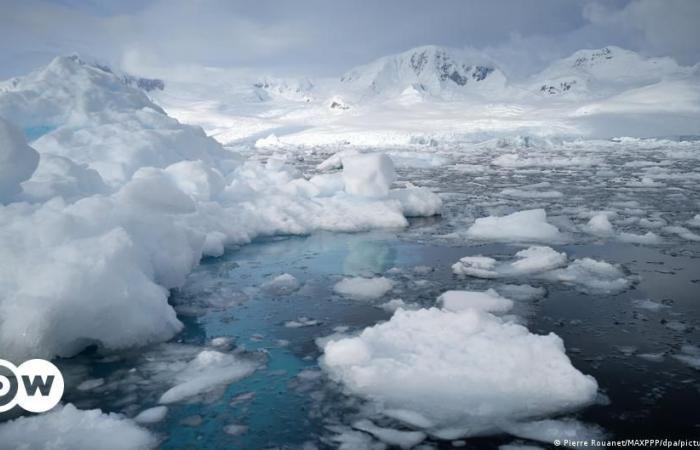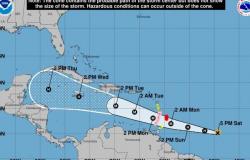Two scientists have discovered that Antarctica is heading towards “uncontrolled melting” of the ice sheets, caused by the intrusion of warm ocean water between the ice and the land on which it sits, says a study published on Tuesday (06/25/2024). ) by Nature Geoscience magazine.
Although this has been observed before, models used by the UN Panel on Climate Change (IPCC) to project the impact of global warming on Antarctica have not yet taken this phenomenon into account, and so have underestimated ice loss.
Overcoming the tipping point
As ocean temperatures rise due to man-made global warming, Antarctic ice sheets are melting, threatening global sea level rise and endangering coastal communities.
“The increase in ocean temperature can lead to exceeding a tipping point, beyond which ocean water penetrates unlimitedly under the ice sheet, through an uncontrolled melting process,” the study notes.
Warm water seeps in and speeds up melting
Antarctica’s ice sheets sit on bedrock and extend beyond the coast to float on the sea. Previous studies have shown that warm seawater is seeping into the “base zone” where land and ice meet, and heading inland from beneath the floating ice.
As the water warms, even a fraction, the seepage accelerates from short distances of 100 meters to tens of kilometers, melting the ice along the way by heating it from below, explains the study’s lead author, Alexander Bradley.
Rising sea levels
The risk of rising sea levels arises when ice melting is faster than the formation of new ice on the continent. Some areas of Antarctica are more vulnerable to this process than others because of the shape of the land mass, which has valleys and cavities where seawater can accumulate under the ice.
According to the study, the Pine Island glacier, the one that contributes the most to the rise in sea level on the white continent, is at high risk of melting due to the slope of the terrain, which allows the entry of more seawater.
Bradley calls for scientific models to be updated to take this phenomenon into account: “It really just underlines the need for urgent climate action to prevent these tipping points from being surpassed,” he concludes.
JU (afp, Nature)






